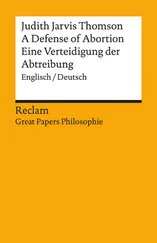Stinson Jarvis - Geoffrey Hampstead - A Novel
Здесь есть возможность читать онлайн «Stinson Jarvis - Geoffrey Hampstead - A Novel» — ознакомительный отрывок электронной книги совершенно бесплатно, а после прочтения отрывка купить полную версию. В некоторых случаях можно слушать аудио, скачать через торрент в формате fb2 и присутствует краткое содержание. Жанр: Классический детектив, foreign_detective, foreign_prose, на английском языке. Описание произведения, (предисловие) а так же отзывы посетителей доступны на портале библиотеки ЛибКат.
- Название:Geoffrey Hampstead: A Novel
- Автор:
- Жанр:
- Год:неизвестен
- ISBN:нет данных
- Рейтинг книги:5 / 5. Голосов: 1
-
Избранное:Добавить в избранное
- Отзывы:
-
Ваша оценка:
- 100
- 1
- 2
- 3
- 4
- 5
Geoffrey Hampstead: A Novel: краткое содержание, описание и аннотация
Предлагаем к чтению аннотацию, описание, краткое содержание или предисловие (зависит от того, что написал сам автор книги «Geoffrey Hampstead: A Novel»). Если вы не нашли необходимую информацию о книге — напишите в комментариях, мы постараемся отыскать её.
Geoffrey Hampstead: A Novel — читать онлайн ознакомительный отрывок
Ниже представлен текст книги, разбитый по страницам. Система сохранения места последней прочитанной страницы, позволяет с удобством читать онлайн бесплатно книгу «Geoffrey Hampstead: A Novel», без необходимости каждый раз заново искать на чём Вы остановились. Поставьте закладку, и сможете в любой момент перейти на страницу, на которой закончили чтение.
Интервал:
Закладка:
Then, by telling her to wake up, and by asking her simple questions and requiring an answer, he succeeded in bringing her back to something like her usual condition. When she quite knew where she was, she thought she must have fainted. All her anger was gone, and Geoffrey, to give the devil his due, felt sorry for her. It had been an interesting episode – something quite new to him in a scientific way – but uncanny. She still looked to him as if for protection, and she would have wept had he not warned her how she would appear in the ball-room. "Oh, Mr. Hampstead, you have treated me cruelly," she said. Geoffrey felt that this was true enough.
"It was all my own fault, though. I do not blame you. You have taught me a great deal to-night. I seem to know, somehow, your best and your worst, and what a man can be."
She leaned upon his arm, partly from weakness and partly because she felt that, good or bad, he was master, and that she liked to lean upon him. The movement touched Geoffrey with compassion. Having nothing to offer in return, it distressed him to notice her affection, which he knew would only bring her unhappiness. He tried, therefore, to say something to remove the impressions that had come to her.
"You speak of good and bad in me," he said quickly. "Now I think you are so much in my confidence that I can trust you in what I am going to say. Don't believe that there is any good in me. I tell you the truth now because I am sorry that we have been so foolish to-night. There is no good in me. It is all – the other thing."
Nina shuddered – feeling as if he had spoken the truth but that it was already too late for her to listen to it.
He took her back into the house, smiling and pleasant to those about him, as if nothing had occurred, and left her with Mrs. Lindon.
But he did not go to find Margaret Mackintosh again. He went home somewhat excited, and smoked four or five pipes of tobacco. At first he was regretful, for he knew he had been doing harm. He said he was a whimsical fool. But after a couple of "night-caps" he began to think how picturesque she had looked in the moonlight, and he afterward dropped off into as dreamless and undisturbed a sleep as the most virtuous may enjoy.
CHAPTER VI
For in her youth
There is a prone and speechless dialect,
Such as moves men; besides, she hath prosperous art,
When she will play with reason and discourse,
And well she can persuade.
If anybody had stated that Geoffrey Hampstead was a scoundrel, he would have had grounds for his opinion. As he did not attempt to palliate his own misdeeds, nobody will do so for him. He repudiated the idea of being led into wrong-doing, or driven into it by outside circumstances. Whatever he did, he liked to do thoroughly, and of his own accord. When Nature lavishes her gifts, much ability for both good and evil is usually part of the general endowment; and, although, perhaps, if we knew more, all wrong-doing would receive pity, Geoffrey possessed a knowledge of results that tends to withdraw compassion. But he had overstepped the mark when he had told Nina there was no good in him. Even his own statement reminded him how few things there are about which a sweeping assertion can be made with truth. He grew impatient to find that so many people do not hold opinions – that their opinions hold them; and when the good equalities of a person under discussion met with no consideration he invariably spoke of them. He had a good word to say for most people, and no lack of courage to say it, and thus he gave impression of being fair-minded, which made men like him. He had the compassion for the faulty which seems to appear more frequently in those whose lives have been by no means without reproach than among the strictest followers of religions which claim charity as their own. He thought he realized that consciousness of virtue does not breed so much true compassion as consciousness of sin; and a young clergyman of his acquaintance found that his arguments as to the utility of sin in the world were very shocking and difficult to answer.
Thus he alternated between good and evil, very much in the ordinary way, with only these differences, that his good seemed more disinterested and his evil more pronounced than with most people. The good which he did was done without the bargaining hope of future compensation, and therefore seemed more commendable. On the other hand, as he had almost forgotten what the idea of hell was, he was not forced to brave those consequences which, if some believe as they profess, must render their deliberate wrong-doing almost heroic.
What should a man be called who had in him these combinations? Too good to be either a Quilp or a Jonas Chuzzlewit, and much too bad to resemble any of the spotless heroes of fiction. It will settle the matter with those who are intolerant of distinctions and who do not examine into mixtures of good and evil outside their own range of life to have it understood and agreed that he was a thoroughpaced scoundrel. This will place us all on a comfortable footing.
Some days after the Dusenalls' entertainment Geoffrey was strolling along King Street when he caught sight of Margaret Mackintosh coming along the street with quiet eyes observant. She walked with a long, elastic step, which seemed to speak of the buoyancy of her heart.
Geoffrey walked slower, so that he might enjoy the beauty of her carriage, and the charm of her presence as she recognized him. It seemed to him that no one else could convey so much in a bow as she could. With the graceful inclination of the head came the pleasure of recognition and a quick intelligence that lighted up her face. It was the bow of a princess, as we imagine it; not, it will be remembered, as Canada has experienced it. A nobility and graciousness in her face and figure made men feel that she had a right to condescend to them. Innocence was not the chief characteristic of her face. However attractive, innocence is a poetic name for ignorance – the ignorance which has been canonized by the Romish faith, and has thus produced all the insipid virgins and heroines of the old masters and writers. She did not show that pliable, ductile, often pretty ignorance, supposedly sanctified by the name of innocence, which has been the priestly ideal of beauty for at least nineteen hundred years – perhaps always.
Hers was a good face, with a sweet, firm, generous mouth, possibly passionate, and already marked by sympathetic suffering from such human ills as she understood. She seemed to have nothing to hide, and she was as free and open as the day, and as fresh as the dawn; and a large part of the charm she had for all men lay in the fact that her self-respect was so assured to her that she had forgotten all about it. She had none of that primness which, is the outcome of an attempt to conceal the fact, that knowledge of which one is ashamed is continually uppermost in the mind.
As soon as her eye rested on Geoffrey, it lighted up with that marvelous quickness which is the attribute of rapidly-thinking people. In a flash her mind apparently possessed itself of all she had ever known of him. Five or six little things to say came tumbling over each other to her lips, as she held out her long gloved hand in greeting. Even Hampstead felt that her quick approach, earnest manner, and the way she looked straight at him almost disconcerted him; but he had thought to wait till she spoke to him to see what she would say. And she thought he would speak first, so a little pause occurred for an instant that would have been slightly awkward had they not both been young and very good-looking and much interested in each other.
"And how are you?" said she heartily, as they shook hands. The pause might have continued as far as either of them cared. They were self-possessed persons – these two.
Читать дальшеИнтервал:
Закладка:
Похожие книги на «Geoffrey Hampstead: A Novel»
Представляем Вашему вниманию похожие книги на «Geoffrey Hampstead: A Novel» списком для выбора. Мы отобрали схожую по названию и смыслу литературу в надежде предоставить читателям больше вариантов отыскать новые, интересные, ещё непрочитанные произведения.
Обсуждение, отзывы о книге «Geoffrey Hampstead: A Novel» и просто собственные мнения читателей. Оставьте ваши комментарии, напишите, что Вы думаете о произведении, его смысле или главных героях. Укажите что конкретно понравилось, а что нет, и почему Вы так считаете.












